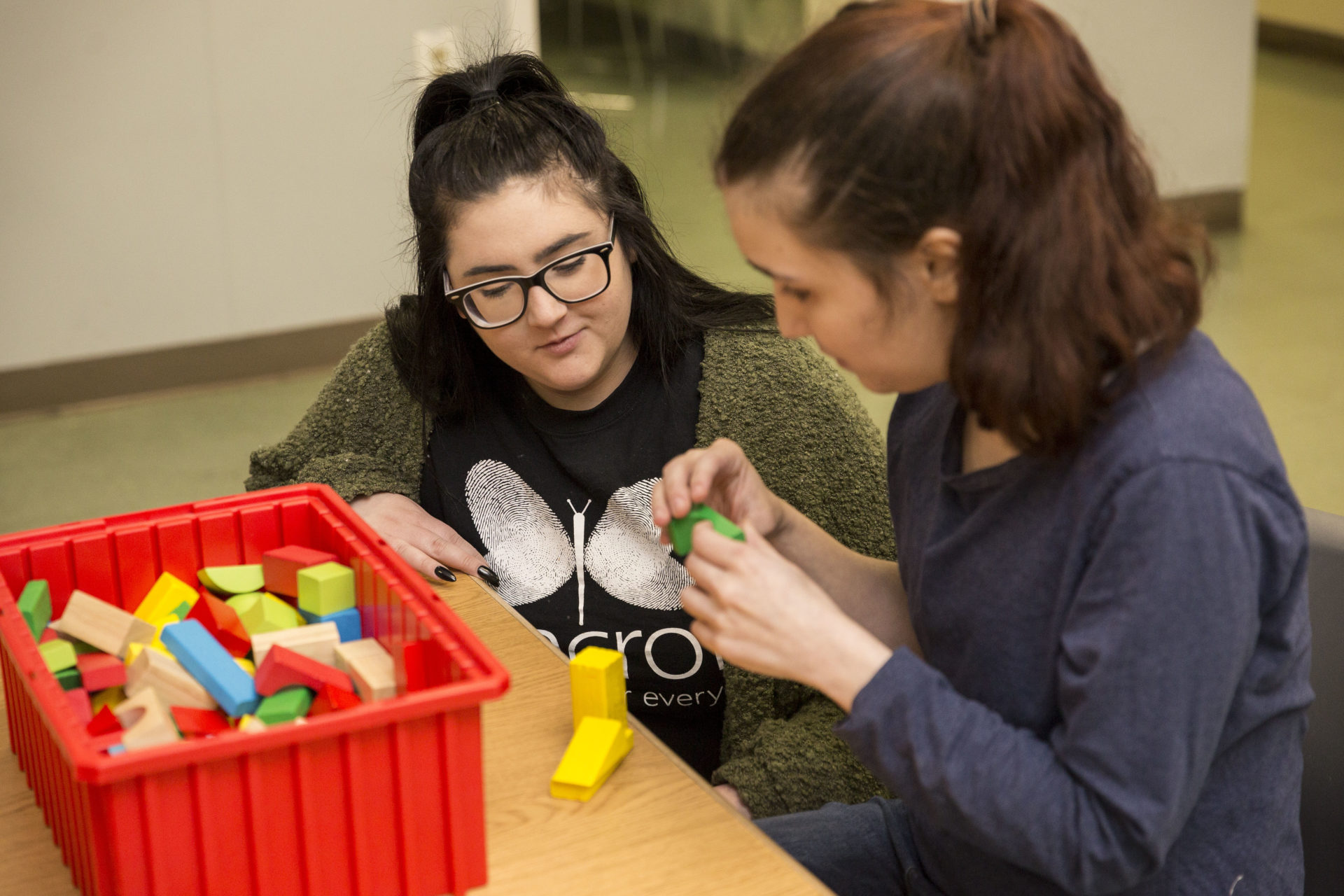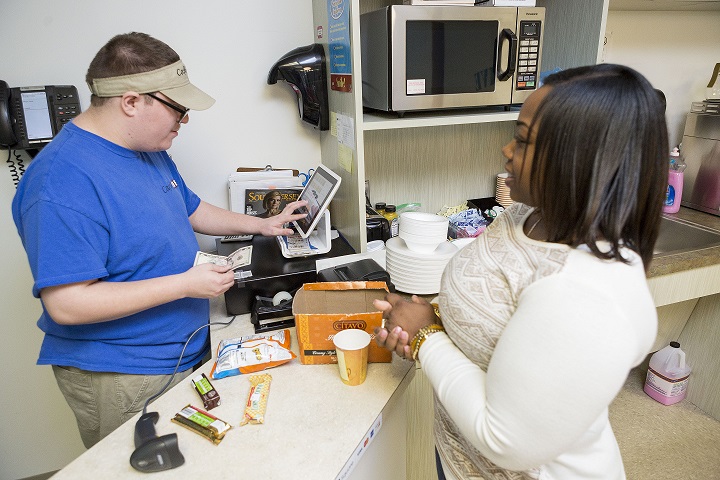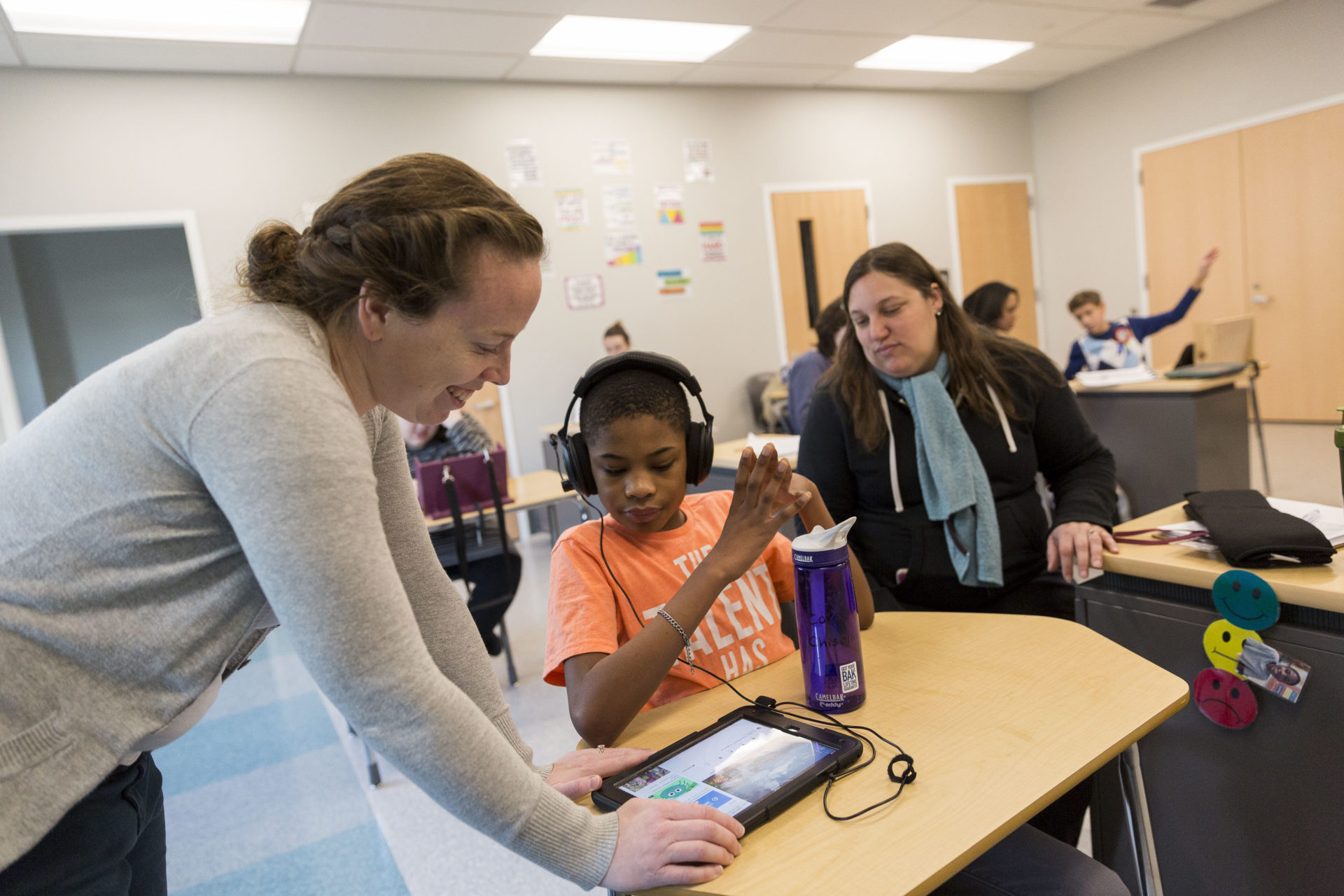Autism Diagnosis & Pediatric Assessments
Home » Autism Treatment » Autism Diagnosis & Pediatric Assessments
An Important First Step in Care
Get the Answers You Need With a Diagnosis Assessment
An early autism diagnosis is a critical first step in ensuring your child receives the supportive services they need to live their best lives. Bancroft’s pediatric neuropsychologist offers expert neuropsychological evaluations, leading to a formal diagnosis, and gives you the answers you need to make decisions for your child’s future.

Contact Us
Please fill out the form below and we will be in touch to discuss the needs of your loved one.
Experience Matters
Diagnostic assessments for autism, ADHD, and intellectual and developmental disorders are part of a new suite of autism treatment services. Bancroft has been designed to meet the growing demand brought on by the increase in autism diagnoses, long wait times for pediatric neuropsychological evaluations, and access to appropriate services.
Bancroft’s experience in treating those with autism and intellectual and developmental disorders runs deep. We have over 100 years of experience in treating those with autism and employ a team of clinical experts in ABA, physical, occupational, and speech therapies who all work in concert to provide the best treatment.
When to Seek an Autism Assessment
Appointments Now Available for Autism Diagnostic Assessments
Speak with an experienced scheduling coordinator to make your appointment today. To make an appointment, call 800-774-5516.
Outpatient Client Satisfaction
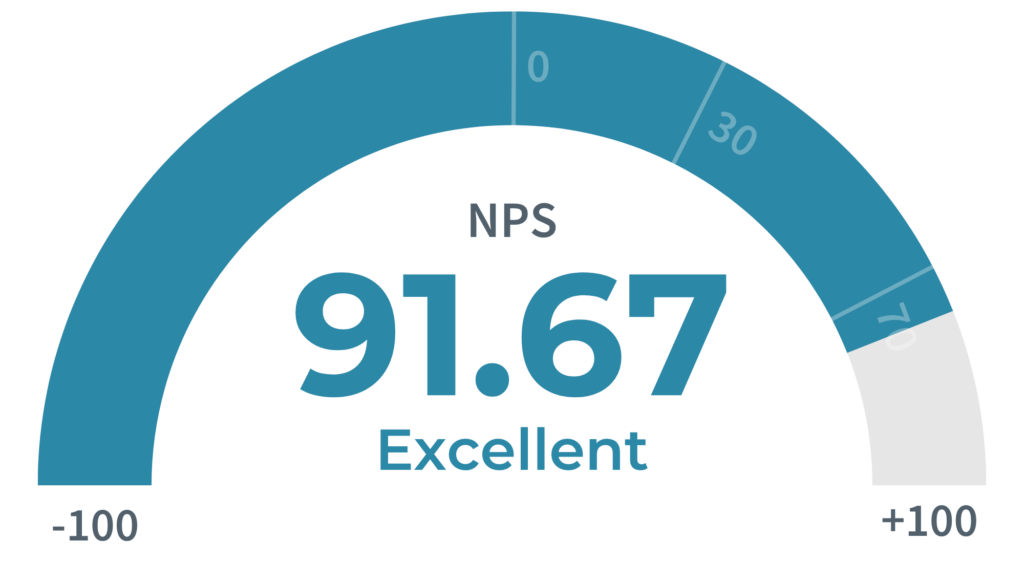
Comparable to autism testing offices nationwide.
Net Promoter Score (NPS)
NPS is a widely recognized measure of customer loyalty and satisfaction. It reflects how likely patients or families are to recommend Bancroft to others, using a scale from -100 (very unlikely) to +100 (very likely). A higher score indicates a stronger level of loyalty and overall satisfaction.

Types of Testing Offered in New Jersey:
- Autism Assessment
- ADHD Assessment
- Full Pediatric Neuropsychological Evaluations
- Psycho-Educational/Learning Evaluations
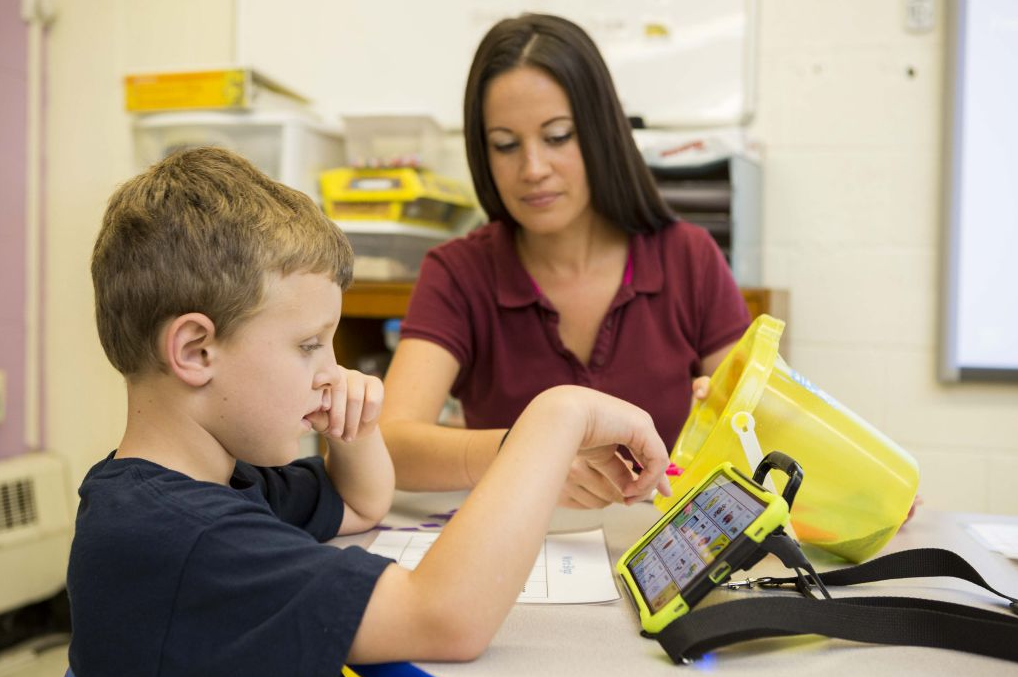
Signs of Autism in Children
- Echolalia, or repeating words or phrases at random out of context
- Incorrect use of pronouns (e.g., saying “he” instead of “me”)
- Parallel play, or playing next to other children on their own, but not engaging in joint play
- Minimal to no interest in engaging with other children
- Unusual eye gaze (e.g., looking at someone out of the corner of their eye) or no eye contact
- Inflexible adherence to routines and distress at small changes (e.g., wearing long-sleeved shirts and pants in warm weather)
- Rigid thinking patterns and insistence on following rules
- Pica or mouthing inedible objects
- Visual inspection of objects (e.g., inspecting the wheels of a toy car as they roll)
- Unusual speech (e.g., speaking in a flat tone or a sing-sing tone)
- Use of non-speech vocalizations (e.g., making vowel sounds repeatedly)
- Unawareness of the presence of other people
- Repetitive motor movements such as spinning in circles or hand flapping
- Repetitive actions (e.g., watching the same video over and over; preferring to line up or sort toys as opposed to using their imagination or acting out stories)
- Sensory abnormalities (e.g., covering their ears or attempting to run away in response to loud sounds; high pain tolerance)
- Sensory-seeking behavior (e.g., rubbing their face on certain textures)
- Self-injurious behavior (e.g., head-banging)

Neuropsychologist
Dr. Ager is a licensed clinical neuropsychologist specializing in pediatric neuropsychology. She earned her Master’s and Doctorate degrees from Widener University and completed a postdoctoral fellowship at Mount Washington Pediatric Hospital. Before joining Bancroft, Dr. Ager worked at Clinical Neuropsychology Associates, focusing on pediatric services. At Bancroft, she provides neuropsychological evaluations and diagnostic assessments to individuals of all ages. She also co-directs the Bancroft site for the Widener University clinical psychology internship program.
Dr. Ager was exceptional! She took her time with the diagnostic evaluation and listened to each concern I️ had with my son’s neurological health. It is because of her expertise and recommendations that I️ was able to further help with my son. When I️ look back over the growth he has made within this past year, I️ am forever thankful. I️ recommend Bancroft to all families I️ encounter who are looking for medical professionals to assist them through their child’s care. Thank you!!
– C.S.

Neuropsychologist
Dr. Pigman is a licensed clinical neuropsychologist who earned his doctorate from Widener University with a concentration in neuropsychology. He completed his predoctoral internship at Thomas Jefferson University and a practicum at Children’s Hospital of Philadelphia. Dr. Pigman completed a two-year postdoctoral fellowship in neuropsychology at Bancroft NeuroRehab, specializing in neuropsychological evaluations for individuals with neurological conditions. Now, he conducts neuropsychological and autism diagnostic evaluations at Bancroft.
– Brad Cawood
Bancroft Lebensfeld Center
201 Kings Highway South, Cherry Hill, NJ
Follow signs for Pediatric Diagnostics located around the left side of the building when you are facing the main entrance. Visitors can park in the side parking lot.
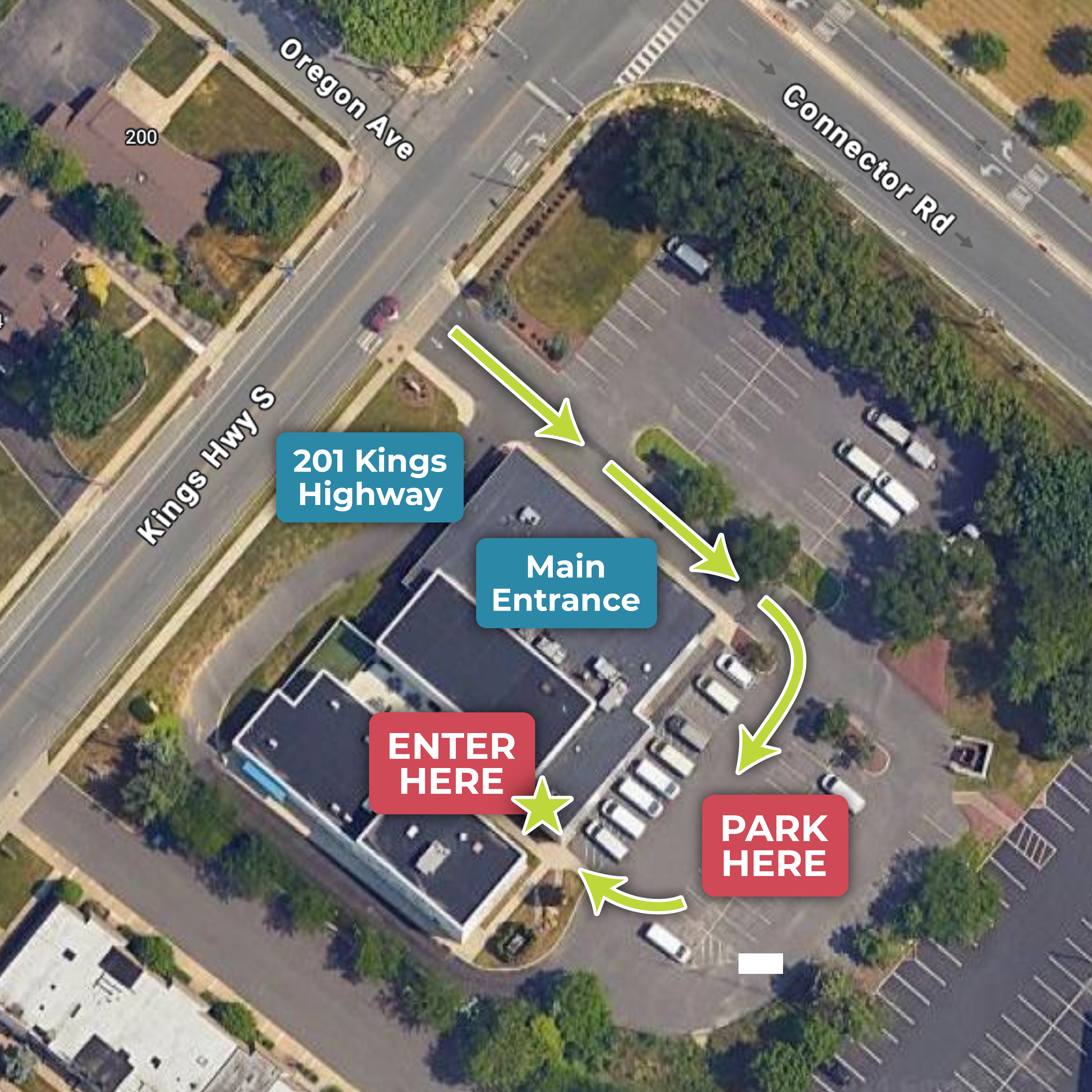
Frequently Asked Questions
Autism is a developmental disability – a condition that affects the way a person thinks, learns, behaves and communicates. It’s also a spectrum disorder – which means people with autism can experience life very differently from one person to the next. Learn more about Autism.
No single test can diagnose autism, the diagnosis is based on an individual’s behavior, as the features of autism can be observed by others.
The most comprehensive way to obtain a diagnosis of autism utilizes multiple sources of information. In an autism diagnostic assessment for a child, a thorough history taking, with emphasis on early child development, is conducted with the child’s parents or guardian. Medical and/or school records may be reviewed. Structured, play-based and/or sensory-based activities are presented to the child, and the child is rated on their interactions, as well as any restricted and repetitive behaviors that are noted during the assessment. Additional cognitive, behavioral, and emotional tests may be administered to rule out other conditions that have similar presentations to autism. Parents, caregivers, and/or teachers also complete questionnaires and rating scales, to assess the presence of autism features compared to normative groups. Then, a diagnostician reviews all relevant sources of information and test data, including determining whether the full diagnostic criteria from the Diagnostic and Statistical Manual of Mental Disorders, Fifth Edition (DSM-5) for autism have been met.
Various types of professionals can make a diagnosis of autism. These include developmental pediatricians, child psychologists, speech-language pathologists, occupational therapists, or other specialists with expertise in identifying autism spectrum disorders.
A neuropsychologist specializes in brain and behavior relationships, or the connections between your behavior and the structural and functional integrity of your brain. They are clinical psychologists who have completed specialized training in neuropsychology. They have expertise in neurologic conditions, as well as mental health conditions.
Yes! Getting a diagnosis is the first step when an individual needs autism-related treatment. Many insurances will not cover treatment services without a proper diagnosis. Additionally, the earlier a child is diagnosed and the earlier they receive treatment, the better the outcome – including a better quality of life for them, and for their caregivers.
No, autism and ADHD are different conditions, though they share some similar features. For instance, both children with autism and ADHD can have difficulties with focus and attention. Children with autism tend to hyperfocus, and they may appear to have trouble paying attention to other things as a result. Children with ADHD have trouble maintaining their attention. In addition, both children with autism and ADHD have trouble in social situations. Both conditions can also involve sensory processing difficulties.
We accept a variety of insurances and private pay. Contact an admissions coordinator for more information.
Assessments are provided at 201 Kings Highway South, Cherry Hill, NJ 08034.
Follow signs for Pediatric Diagnostics located around the left side of the building when you are facing the main entrance. Visitors can park in the side parking lot.
Call 800-774-5516 to talk to an experienced admissions coordinator who can help you with this important first step.
Bancroft Patient Portal
Access your child’s care information to stay connected and informed.
Related Articles
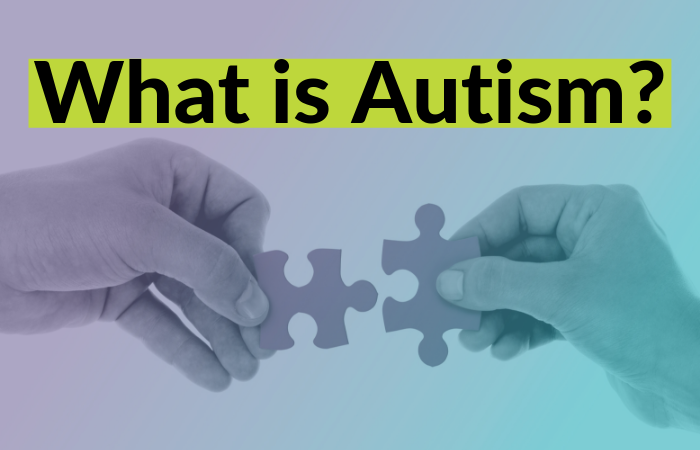
What is Autism?
You may have heard the saying “If you know one person with autism, you know one person with autism.” Autism is a developmental disability – a condition that affects the

Missed Milestones: When should I worry?
Every child hits milestones differently – and some may even bypass certain stages of development. But when does a missed milestone or a routine speech or social delay become a

Autism Diagnosis: Now What?
Danielle Ager, Psy.D.Neuropsychologist Just this month, the Centers for Disease Control and Prevention released new numbers illustrating the rapidly increasing incidences of autism spectrum disorder – and they aren’t encouraging.




